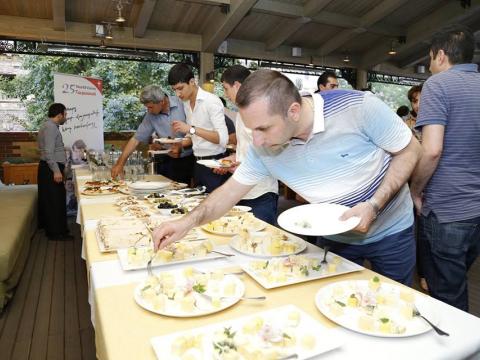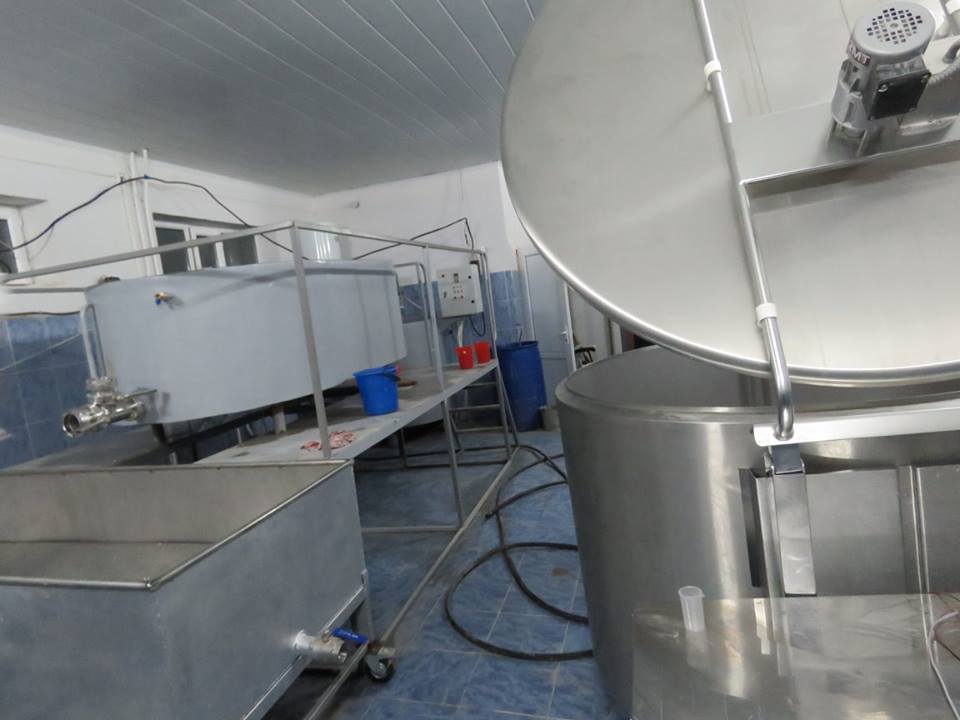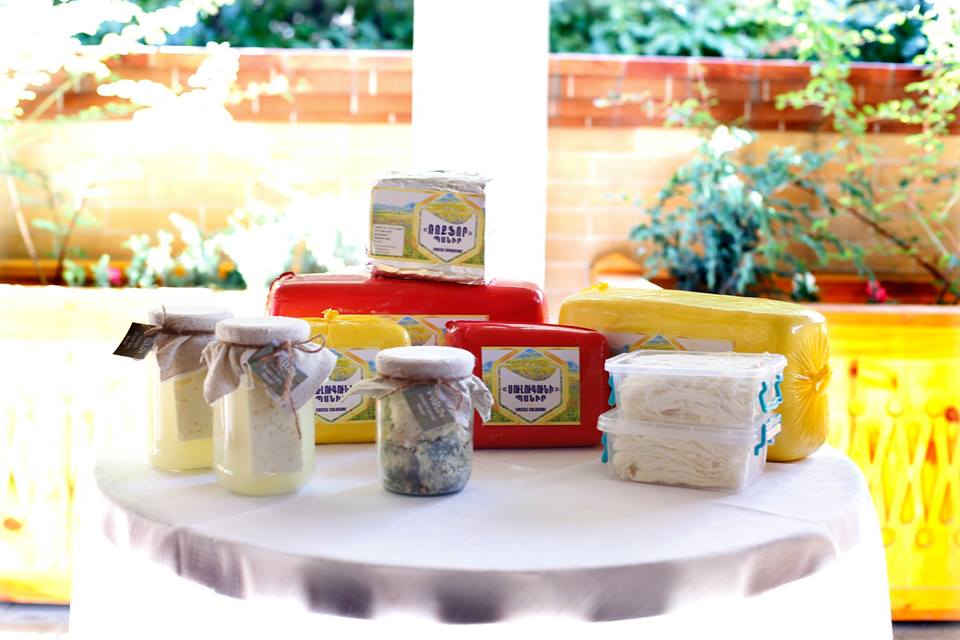From milk collection to cheese production: Armenian farmers’ route to recognition

What started out as a milk collection point to strengthen villagers’ livelihood turned into a cheese production enterprise with huge expansion opportunities. Tsamakasar community of Armenia is now a destination for farmers of nearby settlements to learn the techniques of cheese making.
The story of Astgh Kat (Star Milk) production – a group of 16 farmers - goes back to 2010 when World Vision Armenia established a milk collection point to provide an opportunity for employment and income growth for farmers. The ultimate goal of the programme was to enhance the economic well-being of rural farmers and their families.
World Vision received an abandoned building of a non-operating bath from the Tsamakasar Mayoralty. The facility was renovated and equipped with milk processing technology with funds from World Vision Canada. The cooperative that was established, as a form of management based on shared ownership, has brought together farmer groups to buy and pasteurize the milk from the villagers and deliver it to processing companies. World Vision even donated a truck for transporting the milk.
“It was in late 2012 when we started buying the milk from the villagers. I clearly remember the day when we received the first 6 litres,” recalled Sos Saroyan, the chairman of the cooperative, "the number doubled and tripled in the following days with the current monthly average volume of 400 litres of milk bought from around 100 unique sellers". The initiative came as a rescue to the residents of the nearby communities that brought the milk in exchange for cash.
The milk collection initiative helped the villagers, but it didn’t generate the profit desired by the cooperative, since the processing companies were the ones to set the price that ultimately didn’t cover the operation costs.
“Someone asked the question: why do we give the raw milk to processing companies if we can organise the production ourselves? The production might also create employment opportunities“ said Gagik Poghosyan, World Vision local coordinator. Inspired by the idea, the group of producers applied for a World Bank competitive grant and won US$20,000. The cooperative obtained additional equipment, containers, refrigerators and the milk collection center successfully ventured into cheese production.
Thus far, Astgh Kat has produced around 17 tons of Lori, Chanakh and Suluguni types of cheese. Today, the cooperative produces an estimated of 2,5 tons of cheese monthly with a production capacity of up to 10 tons.
“High quality product was the defining feature that ensured our competitive advantage to expand throughout the Armenian market, since otherwise we would fail to beat other producers,” Poghosyan stressed, referring to the sector dominated by established players where smaller farmers had little chance to strive unless they brought certain uniqueness to it. Astgh Kat created that uniqueness. Rather than winning the competitive market through dumping the price at the expense of the quality, the company shifted to assortment expansion to take the segment of consumers with gourmet preferences. It initiated the Roquefort cheese production and won the ENPARD agricultural EU grant to expand the facility and adjust the conditions to specific standards for Roquefort production.
World Vision accompanied the group along the whole cycle of development and operational aspects of cheese production. Initial donations turned into analysis on consumption trends, business modeling and conducting trainings from marketing strategies to cheese packaging.
Guided by World Vision the group representative managed to tackle the bureaucratic complexity of obtaining a license for product quality and safety standards.
Promotional campaigns were launched with the most recent cheese-tasting event held in Yerevan, where the Astgh Kat product was presented to Armenia’s leading food stores and restaurant chains. The event was crowned with signed memorandums and promising volumes of impressive sales. They have also shared a big news at the event: the enterprise has obtained permission to export the product to the common market of the Eurasian Union.
Today, Astgh Kat is a self-sustaining enterprise. References to World Vision come to showcase how much can be done if a dedicated team of farmers and World Vision makes a commitment for change.
“It is like a child whom you cared for, grew up and moved on with his own life spreading his wings, but as a caring parent you occasionally get back to see how he is doing and what other accomplishments he has made,” Poghosyan described World Vision’s unique patronage of the producers’ group.

